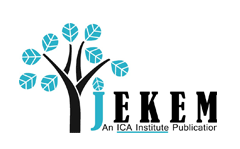Abstract
Global interaction, a perennial phenomenon among human groups, is a function of perceived need. The fact that Columbus’ contact with the New World was an accident does not discount the fact that he was seeking a new trade route to Asia—and avoiding established ones. And, this contact by that dark miracle of fate or chance altered the destiny of men and nations. Similarly, the Silk Road, the greatest land route on earth, traces trade, travel and ideas. Travel and trade, in turn, generate contact with groups beyond one’s particular culture—which, by itself, is a tumultuous journey into the unknown as mysterious, unsettling, and fraught with danger and uncertainty as any physical voyage of discovery. The cost, real or prospective, of innovation is therefore high, as is the risk. The other side of the same coin is, of course, the perceived benefit derived from successfully navigating uncharted geographic and cultural terrains. And, as evinced innumerable times throughout human history, the benefit to one group may come at the expense of another. Travel, trade and contact, in a very real, very human sense, can change the definition of what is perceived as global, as benefit, and as human. No matter how good we become, we always want to be better as thinking is our most important skill.
DOI
10.7885/1946-651X.1001
